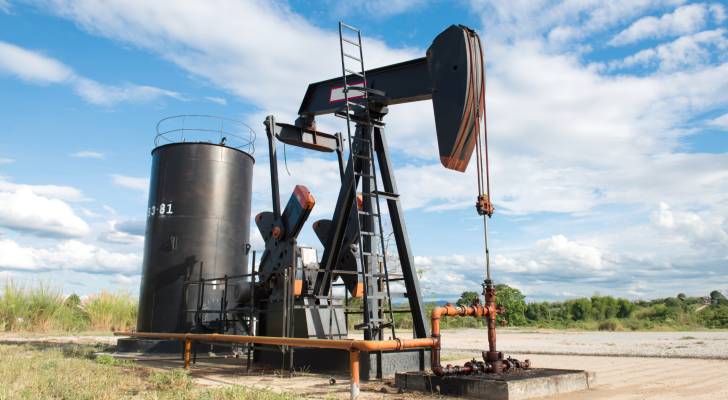Oil prices rise as Iran-“Israel” tensions enter 7th day
Oil prices climbed Thursday amid ongoing military escalation between Iran and “Israel”, now in its seventh consecutive day, as concerns over potential US involvement fueled investor caution and heightened volatility in global energy markets.
Brent crude futures rose $2.15, or 2.8%, to close at $78.85 per barrel.
US West Texas Intermediate (WTI) crude for July delivery gained $1.72, or 2.3%, to settle at $76.86 per barrel.
Trading volumes were light in US markets due to holiday, but geopolitical tensions remained the dominant force driving prices.
Geopolitical Risk Premium
“There’s a healthy risk premium priced in right now,” said Tony Sycamore, an analyst at IG trading platform, noting that markets are bracing for either a US strike on Iran or a diplomatic breakthrough.
Goldman Sachs echoed this sentiment, stating that a geopolitical premium of around $10 per barrel is currently justified, citing reduced Iranian oil supply and the rising risk of wider conflict. The bank warned Brent could surge past $90 a barrel if the crisis deepens.
Phil Flynn, senior analyst at Price Futures Group, said a return to $60, oil levels seen just a month ago, is unlikely even if the Middle East situation de-escalates, given the current market dynamics.
Uncertainty Over US Response
Trump stated he had not yet made a final decision on whether to intervene directly against Iran, promising to announce his position within two weeks.
Priyanka Sachdeva, an analyst at Phillip Nova, said Trump's unpredictable foreign policy stance "keeps markets jittery, awaiting clearer signals that could impact supply flows and regional stability."
RBC Capital’s Helima Croft warned that any existential threat to Iran could provoke attacks on oil tankers or regional energy infrastructure, especially if Washington becomes directly involved in the conflict.
Iran and the Strait of Hormuz
Iran, the third-largest oil producer in OPEC, pumps about 3.3 million barrels per day and plays a crucial role in securing the Strait of Hormuz, a key waterway through which between 18 and 21 million barrels of oil and petroleum products pass daily.
Any military disruption could choke global energy flows and send prices soaring.
Russia and OPEC+ Reassess Strategy
Speaking at the St. Petersburg International Economic Forum, Russian Deputy Prime Minister Alexander Novak reiterated the need to stay the course on production plans under the OPEC+ alliance.
He projected rising oil demand in the coming summer months and emphasized the importance of market stability amid geopolitical headwinds.
The outlook for oil remains clouded by conflict, diplomacy, and uncertainty, leaving energy markets bracing for further turbulence.




